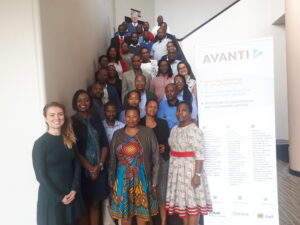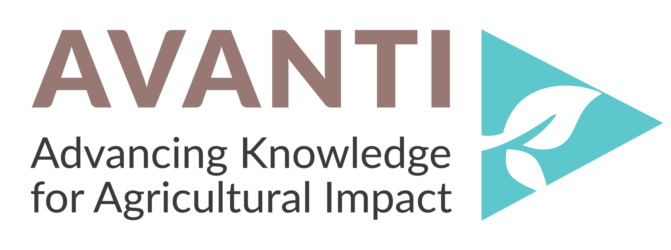Four things I learnt from AVANTI’s AG-Scan in Lesotho
 By Emmeline Henderson, Knowledge and Communications for Lesotho AG-Scan, June 2019
By Emmeline Henderson, Knowledge and Communications for Lesotho AG-Scan, June 2019
In April, we completed an interactive and engaging AG-Scan in Lesotho, the last of our five ‘pilot’ scans as we build up the AVANTI Initiative. The purpose of the AG-Scan is to create an opportunity for participants to assess the institutional capacity to track national agricultural and rural development and measure against the SDGs (learn more about the AG-Scans here). All of our participants were put through their paces as they self-assessed the current status of monitoring and evaluation and results-based management (RBM) in the agricultural sector in Lesotho.

Starting out, there was a fear from some participants that this would be ‘just another workshop’ – that a lot of effort would be put in reflecting, contributing and planning without something concrete to show for it at the end. But the point of the AVANTI Initiative is to use the brainpower of people from across government entities and key partners, to harness their knowledge and passion, to create an action plan for M&E and RBM based on what they identify as the priorities and needs in their specialist areas.
In my role of workshop recorder, I had the opportunity to watch an AG-Scan in action while not getting too bogged down in the detail (and there is a lot of detail). Here are some of the lessons I have learned from the experience:
1. Bringing together knowledge unlocks energy
The AG-Scan process is thorough and takes a little bit of time to get going – we’re asking important and complex questions over the course of a number of days and that can be a little daunting for participants and facilitators alike. But in the Lesotho AG-Scan we had amazing people from across government ministries with in-depth specialist knowledge and experiences – bringing them together, and emphasizing the potential of having all these brains in the room, was energizing and helped the AG-Scan not only get going but also maintain momentum as we moved through the sessions.
2. A shared understanding of terms and processes goes a long way
Monitoring and evaluation has its own unique (and often jargon-y) language. Ensuring that everyone in the room has the same understanding of what we mean when we say things like ‘results-based management’ or what different acronyms stand for is integral to getting everyone working well together. Similarly, people from different ministries have their own terms, definitions and ways of working – developing a shared understanding of these different practices (reasonably quickly in the scan process) goes a long way to getting fruitful discussions developing with everyone on the same page and improving clarity.
3. We need to maintain momentum and keep the dialogue going
The AG-Scan brings together people who work in (sometimes siloed) ministries and organisations – the danger is that once the workshop is over, they will go back to their offices and any potential collaboration will be stifled. How do we maintain the momentum we’ve built over the last few days and start to build a community around the action plan? How can we empower them as a group to work together to build monitoring and evaluation capacity across their government, and bring their leaders along on the RBM journey? The action plan created as a result of the workshop aims to maintain this momentum by assigning responsibility and checking progress. The AVANTI Initiative also has a substantial knowledge sharing component, where we will work to keep everyone who has been involved in AG-Scans the world over up to date on what other countries have found or are working on. We know from feedback that meeting and working with colleagues from other organisations and ministries has been incredibly helpful for our participants and we hope to support this through the finalization of the action plan and beyond.
4. The process has to be owned by the participants
The people doing the AG-Scan own the process – we’re just here to facilitate the discussions and to enable knowledge sharing and learning. This is integral to really uncovering the depth of understanding and the detail of the current status of M&E and RBM in Lesotho’s agricultural sector. The AG-Scan process allows for customisation to country contexts and as the work developed the group was able to focus on what works well and what the challenges are in their own context – they could look across multiple ministries, projects and initiatives on a wide scale, to see how everything could fit together, as well as delve down deeper into the day to day realities on the ground and begin to plan how to bring everything together. This ownership is key to the success of the workshop, the implementation of the action plan and is the fundamental basis of the AVANTI Initiative as a whole.
We’ve got more AG-Scans coming up, and we’re looking forward to sharing even more lessons as we go along – watch this space!
